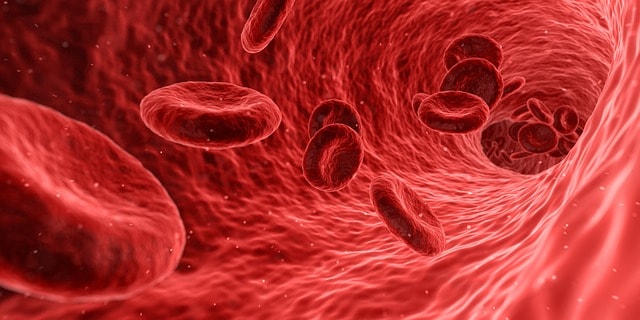Men and women are lacking Omega-3 fatty acids in your diet. And because of the shortage of Omega 3 fatty acids in the food you are eating, your health is at risk. Some health problems related to not getting enough Omega 3 in your diet are cardiovascular disease, heart disease, obesity, arthritis, and increased cancer risk.
First, this article will explain what Omega-3 fatty acids are. Then, we will look at the health benefits of Omega 3 fatty acids. Finally, it will go over some important foods that you can add to your diet to be sure that you are getting enough of this healthy fat and living your best life.
Contents
What is Omega-3 fatty acid?
 Omega-3 is an essential nutrient. This means that our body cannot produce it by itself and it must come from our food. It is found in cold water fish like salmon, nuts, seeds, grass-fed meat, and green vegetables. Some of the best plant-based Omega-3 fatty acids supplements come from flaxseed oil and algae oil.
Omega-3 is an essential nutrient. This means that our body cannot produce it by itself and it must come from our food. It is found in cold water fish like salmon, nuts, seeds, grass-fed meat, and green vegetables. Some of the best plant-based Omega-3 fatty acids supplements come from flaxseed oil and algae oil.
So, what is the big deal about Omega-3s? Well, they are an important part in building cell membranes. And they also affect the cell receptors in these membranes. By binding to the receptors, Omega-3s play an important role in regulating inflammation, blood, and genetic function.
There are 2 main types of Omega-3 fatty acids, DHA and EPA. DHA is primarily found in fish and fish oil supplements, while EPA mostly comes from plant sources.
Omega-3s are also one of the two main classes of polyunsaturated fats. The other is Omega-6 fatty acids. Scientists have shown that the levels of these two fats is critical to our health.
Researchers believe that historically people consumed them with a ratio(Omega-6 to Omega-3) of 1:1 because our ancestors spent a lot of time fishing near the shore. As we became more independent and became hunter-gatherers and farmers that level moved closer to 4:1. Now, with high amounts of processed foods the average person eats them around levels of 20:1.(1)
Scientists believe that our best ratio is somewhere near the 4:1 mark, which means that right now we have a severe shortage of Omega-3 fatty acids and an overabundance of Omega-6 in our diets. This is causing all sorts of health problems.
Benefits of Omega-3 fatty acids
By adding Omega-3 fatty acids into your diet, you will begin to move the ratio of Omega-6 to Omega-3s into a healthy range. This will enable you to get some of the following health benefits.
1. Can Reduce the Risk of Heart Disease
 Ever since researchers noticed that people in fishing communities had lower rates of heart disease, they have been studying the effects of Omega-3s on heart health. Because of this, the American Heart Association has recommended that people eat fish high in Omega-3 fatty acids twice per week.
Ever since researchers noticed that people in fishing communities had lower rates of heart disease, they have been studying the effects of Omega-3s on heart health. Because of this, the American Heart Association has recommended that people eat fish high in Omega-3 fatty acids twice per week.
An article from the Mayo Clinic states that “Omega-3 fatty acids may decrease triglycerides, lower blood pressure slightly, reduce blood clotting, decrease stroke and heart failure risk and reduce irregular heartbeats.” This may be due to the anti-inflammatory benefits of increasing your Omega-3 intake. Also because it plays a role in cell regulation of blood markers.(2)
2. Can Improve Brain Health
Studies have shown that Omega-3 fatty acids have neuroprotective properties. These properties can help the brain with degenerative diseases such as Alzheimers and Parkinsons. Also, decreases in learning and memory may be linked to inflammation which causes brain shrinkage as people age. So, by reducing it, you can prevent age-related brain decline.
Finally, studies have shown that EPA and DHA may also play some role in adult neurogenesis which helps in the creation of new neurons and can make you smarter.(3)
3. Reduces Long Term Inflammation

Inflammation is not always a bad thing. When your body is fighting infections and injury, it serves are a way of the body protecting itself. But when there is no injury or long-term infection inflammation could be dangerous to your health. To read more about this topic, visit naturemadecures.com/reduce-inflammation/.
Omega-3 fatty acids play a role in regulating inflammatory cell markers. This way the cell can efficiently serve overall health. “At sufficiently high intakes, long-chain n-3 polyunsaturated fatty acids (PUFAs), as found in oily fish like salmon and fish oil, decrease the production of inflammatory eicosanoids, cytokines, and reactive oxygen species and the expression of adhesion molecules.”(4) That means that Omega-3 is a powerful anti-inflammatory.
4. Improves Mental Health
Omega-3 fatty acids may be able to improve mental health issues like depression, anxiety, and ADHD. In an article published by Harvard, doctors believe that a combination of EPA and DHA are helpful in treating mental disorders like depression. They are quick to point out that recent studies suggest people who are overweight and have elevated inflammatory activity appear to be the best candidates for treatment with this fat.(5)
5. Anti-Aging
One sign of a lack of DHA is rough or scaly skin. By adding Omega-3 into your diet, you can your skin will be smoother, softer, and wrinkle-free. Also, it has shown it can reduce inflammation in your hair follicles which could actually regrow hair. Skin appearance, as well as mental decline, are two significant markers of age.
By protecting your skin and brain and helping to boost collagen production, Omega-3 fatty acids are an easy way to prevent age-related decline.
6. Better Quality of Sleep
 In a study of children with clinical-level sleep problems, scientists were able to show that supplementation of Omega-3 fatty acids were able to increase the quality and duration of the children’s sleep.
In a study of children with clinical-level sleep problems, scientists were able to show that supplementation of Omega-3 fatty acids were able to increase the quality and duration of the children’s sleep.
Overall they slept on average 58 minutes more per night. Although they say that more research is needed, Omega-3s may improve sleep quality.(6)
They also believe that one of the reasons for this is the ability to regulate heart rate through the night.
7. Increases Bone Strength
Essential fatty acids, such as docosahexaenoic acid, “have now been shown to increase calcium absorption from the gut, in part by enhancing the effects of vitamin D, to reduce urinary excretion of calcium, to increase calcium deposition in bone and improve bone strength and to enhance the synthesis of bone collagen.”(7)
This means that by ensuring you get enough fatty acids, you will lower your risk of degenerative bone diseases like osteoporosis. Coupled with a good diet, you can actually reverse osteoporosis with a strength training routine. You can read the article at naturemadecures.com/reverse-osteoporosis-bone-loss-naturally/.
8. Reduces Symptoms of Metabolic Syndrome
Omega-3 has been known to lower blood pressure, improve insulin resistance, and decreases the risk of obesity. As omega-6 to omega-3 ratio increased, so did the prevalence of obesity, issues with metabolism, and cardiovascular disease. And they were able to mimic the results in rats.
They believe this happens because “Omega-6 fatty acids increase cellular triglyceride content by increasing membrane permeability [70], while omega-3 fatty acids reduce fat deposition in adipose tissues by suppressing lipogenic enzymes and increasing β-oxidation.”(8)
Foods High in Omega 3
 The main foods with good ratios and high levels of Omega-3 fatty acids are wild caught cold water fish, walnuts, flaxseeds, chia seeds, grass-fed beef, free-range eggs, and leafy greens.(9) Flaxseed oil, walnut, hemp, and fish oil are the main oils with good levels. On the contrary, most oils like sunflower, cottonseed, peanut, and palm oil all have high levels of Omega-6.
The main foods with good ratios and high levels of Omega-3 fatty acids are wild caught cold water fish, walnuts, flaxseeds, chia seeds, grass-fed beef, free-range eggs, and leafy greens.(9) Flaxseed oil, walnut, hemp, and fish oil are the main oils with good levels. On the contrary, most oils like sunflower, cottonseed, peanut, and palm oil all have high levels of Omega-6.
Farmed fish and caged animals all have higher Omega-6 content and lower Omega-3 content. “Modern agriculture, by changing animal feeds as a result of its emphasis on production, has decreased the omega-3 fatty acids content in many foods: animal meats, eggs, and even fish “… and also, “modern aquaculture produces fish that contain less omega-3 fatty acids than do fish grown naturally in the ocean, rivers, and lakes. The fatty acid composition of egg yolk from free-ranging chicken has an omega-6:omega-3 ratio of 1.3 whereas the United States Department of Agriculture (USDA) egg has a ratio of 19.9″(8)
So make sure if you are eating fish and animals you are choosing better options. Also, eating sustainable meat, you are reducing the demand for factory farmed fish and beef. This not only makes you healthier but also helps out the environment too! Check out our article on the top 7 sustainable and healthy Omega-3 fatty acid foods.
Finally, many people supplement with Omega-3 sources. The most common supplements include fish oil, krill oil, and flaxseed oil.
Conclusion
Omega-3 fatty acids have a ton of health benefits. And without being aware of the type of fatty acids that are in our foods, we can be potentially be causing serious health effects. Chronic inflammation is linked to many severe diseases, and by eating more Omega-3, we can avoid them.
Take a look at the fats you are eating in your diet and make some substitutions for more healthy food options. Your body will love you for it!
References:
(1) https://www.ncbi.nlm.nih.gov/pmc/…
(2) https://www.mayoclinic.org/…
(3) https://www.ncbi.nlm.nih.gov/pmc/…
(4) https://www.ncbi.nlm.nih.gov/pubmed/…
(5) https://www.health.harvard.edu/blog/…
(6) https://www.ncbi.nlm.nih.gov/pubmed/…
(7) https://www.ncbi.nlm.nih.gov/pubmed/…
(8) https://www.ncbi.nlm.nih.gov/pmc/…
